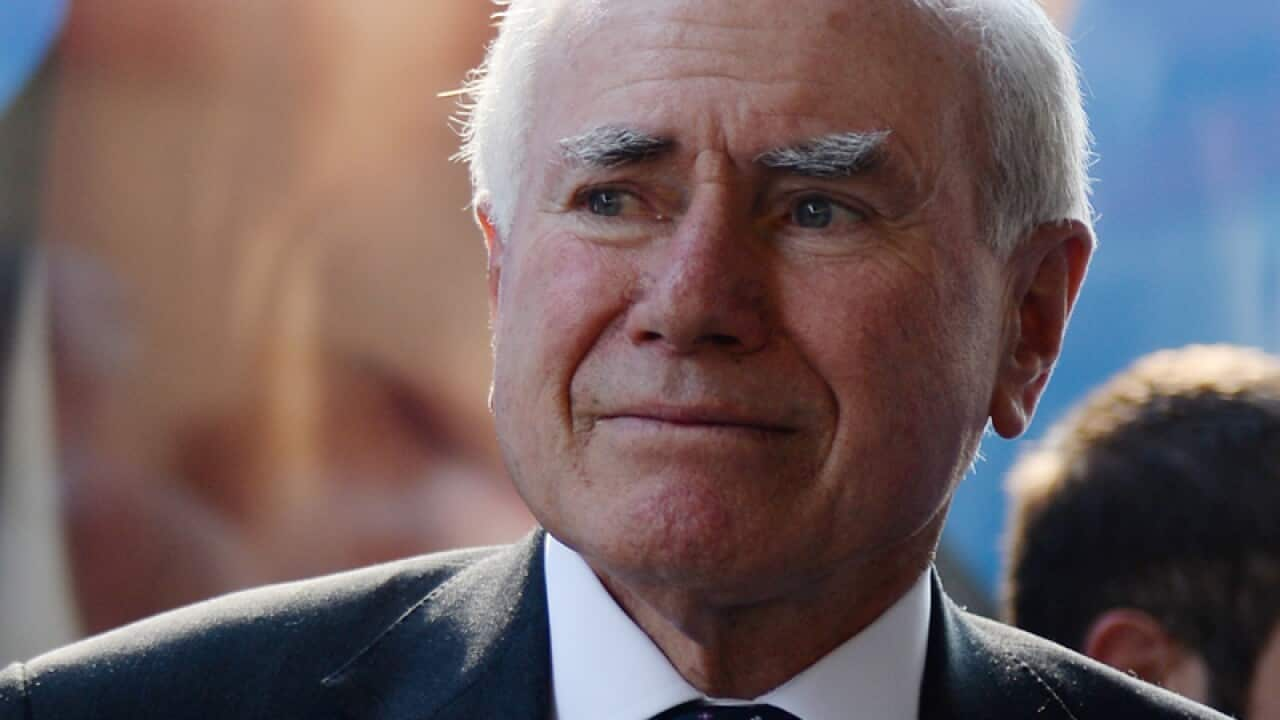Tony Blair, the former prime minister who led Britain into war in Iraq in 2003, is defending his legacy following the publication of a highly critical report into the war with a simple message: "Please stop saying I was lying".
The long-awaited report into a war which has cast a shadow over British foreign policy for more than a decade found that Blair relied on flawed intelligence and that the way the war was legally authorised was unsatisfactory.
It also revealed he had pledged to support the United States "whatever", eight months before the invasion.
Related reading

Howard, Libs stand by Iraq war
"If you disagree with me fine, but please stop saying I was lying or I had some sort of dishonest or underhand motive."
But Blair, whose legacy as a three-times election winner for the centre-left Labour Party has been overshadowed by years of accusations that he had lied to exaggerate the intelligence case for war, said the report vindicated his "hardest, most momentous and agonising decision".
Blair faced hostile questioning from national and international media, who said his assurances to former US President George Bush had amounted to a "blank cheque for war" and that he had abandoned diplomatic channels too easily.
In response, during a 109-minute news conference, Blair was at times contrite and emotional, and at other times clearly angry at the way his actions had been portrayed.
Related reading

Chilcot report slams UK involvement in Iraq War
"If you disagree with me fine, but please stop saying I was lying or I had some sort of dishonest or underhand motive," he told reporter.
"'You lied about the intelligence' - that's what people say the whole time," Blair said.
"Actually if people are being fair and read the whole report, that allegation should be put to rest, because it's not true and it never was true."
In a statement which was twice as long as that delivered by the chairman of the inquiry, John Chilcot, Blair sought to address the full spectrum of criticism levelled at him, saying he accepted total responsibility "without exception or excuse".
He acknowledged failing to adequately plan for the aftermath of the invasion which triggered sectarian violence and protracted British military involvement.
Related reading

Howard 'embarrassed' about joining 2003 Iraq war
In six years, more than 150,000 civilians and 179 British soldiers died.
But he disputed one of the report's key findings; that diplomatic options had not been exhausted at the point he decided to join the US invasion, saying he had faced a "binary" decision which could not have been delayed.
Drawing his media appearance to a close after more than an hour of questions, he said that on the basis of the information he had at the time, he would take the same decision again.
Let Chilcot be guide for Australia: Leahy
A former Australian chief of army believes a seven-year inquiry into the Iraq war should act as a guide for Australia's future.
Responding to the 2.6 million-word Chilcot report, Peter Leahy - who oversaw the army from 2002-2008 - says Australia needs to be careful of "blindly" going along with its international partners.
"Frankly, some of the decisions the United States, our senior partner in our strategic alliance, have made over the last 20 or 30 years have been a bit crook," he told ABC TV.
"I think it does give us this really important guide to the future, that we need to be able to take independent, sovereign decisions based on our own national interests and what the strategies might be."
Professor Leahy said Australia had very little say in what happened in 2004 and 2005 and many decisions made then led to much of the chaos nowadays.
He doesn't believe there needs to be a similar review in Australia.
"Let's have a discussion not an inquiry around our relationship with the United States, how we decide to go to war and very importantly how we decide everyday when we are at war, to stay at war."
Wilkie calls for inquiry
Former intelligence analyst and now Tasmania independent MP Andrew Wilkie said it was clear there was no imminent threat from Hussein and peaceful options had not been exhausted.
The Iraq invasion had "turbo-charged" terrorist groups like Al Qaeda and Islamic State and both Mr Howard and former foreign minister Alexander Downer should be held to account, Mr Wilkie said, renewing his call for a third and broader Australian inquiry into the war.
"I will take it up with whoever is the next prime minister," he told reporters in Melbourne.
Mr Wilkie resigned from the Office of National Assessments in protest over the government's decision to join in the Iraq war.
"Frankly, there are a number of political leaders who in my opinion have blood on their hands. The Bali bombing of 2005 would not have occurred if we haven't have joined in the invasion of Iraq," he said.
"The Lindt Cafe siege would not have occurred if we hadn't helped create the circumstances for the rise of Islamic State."


